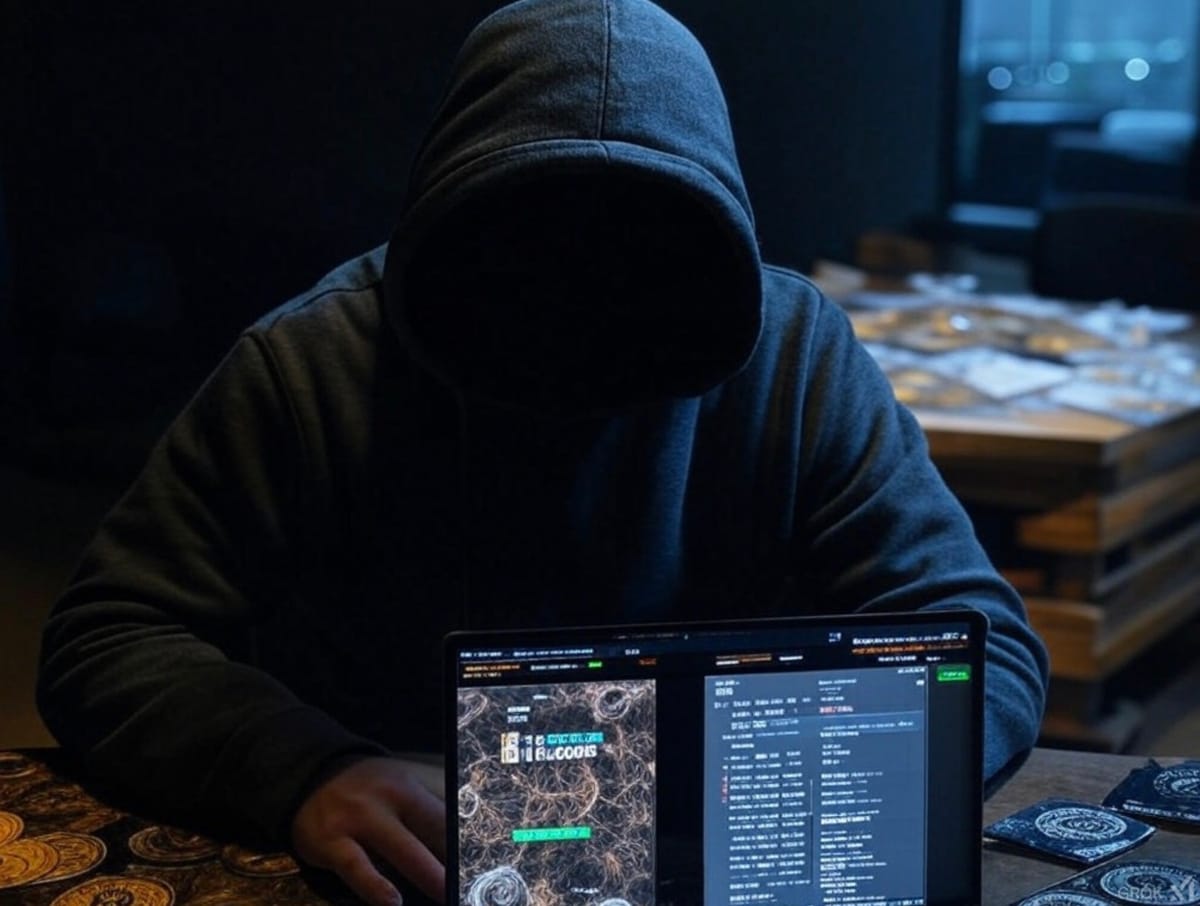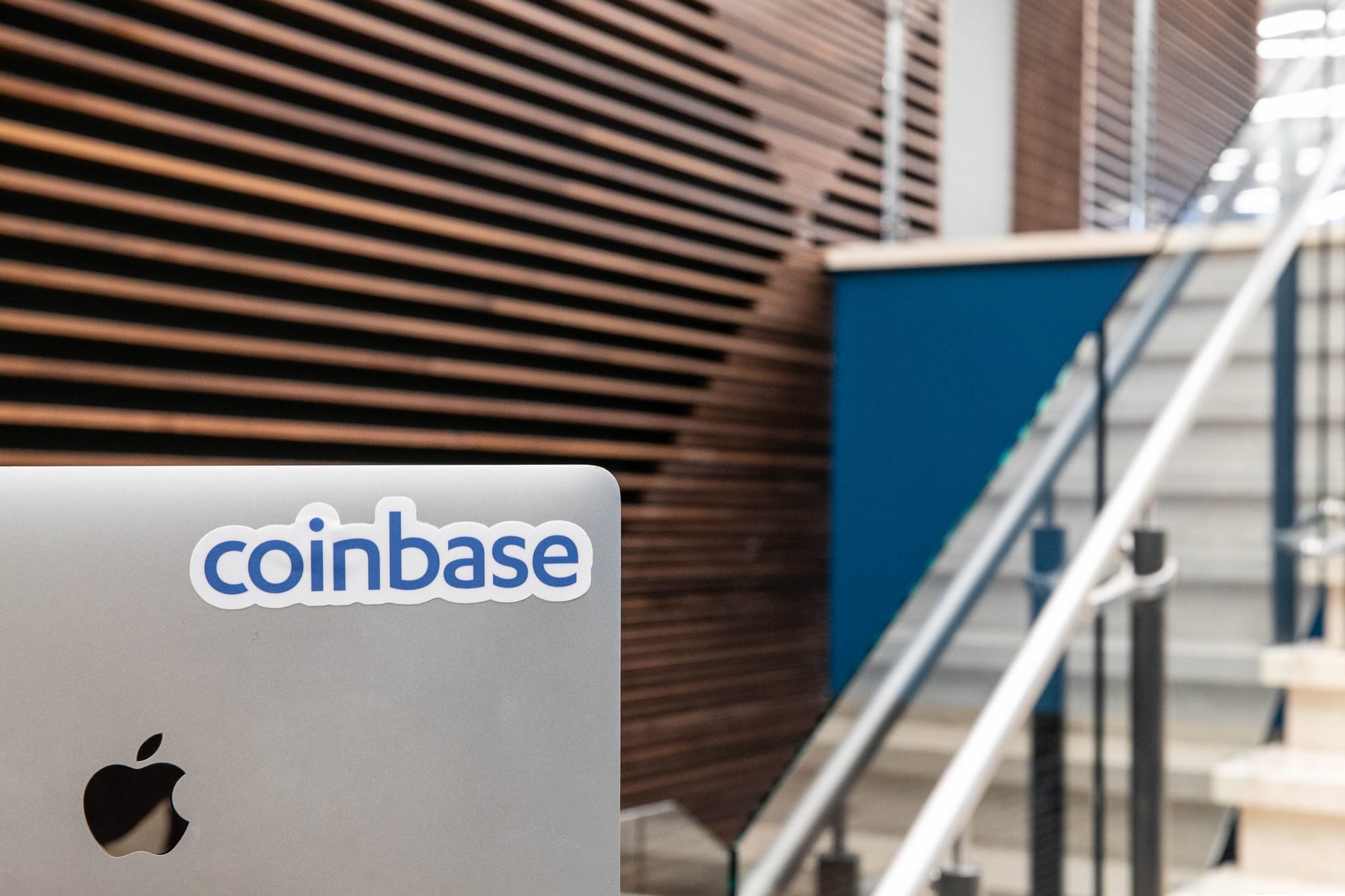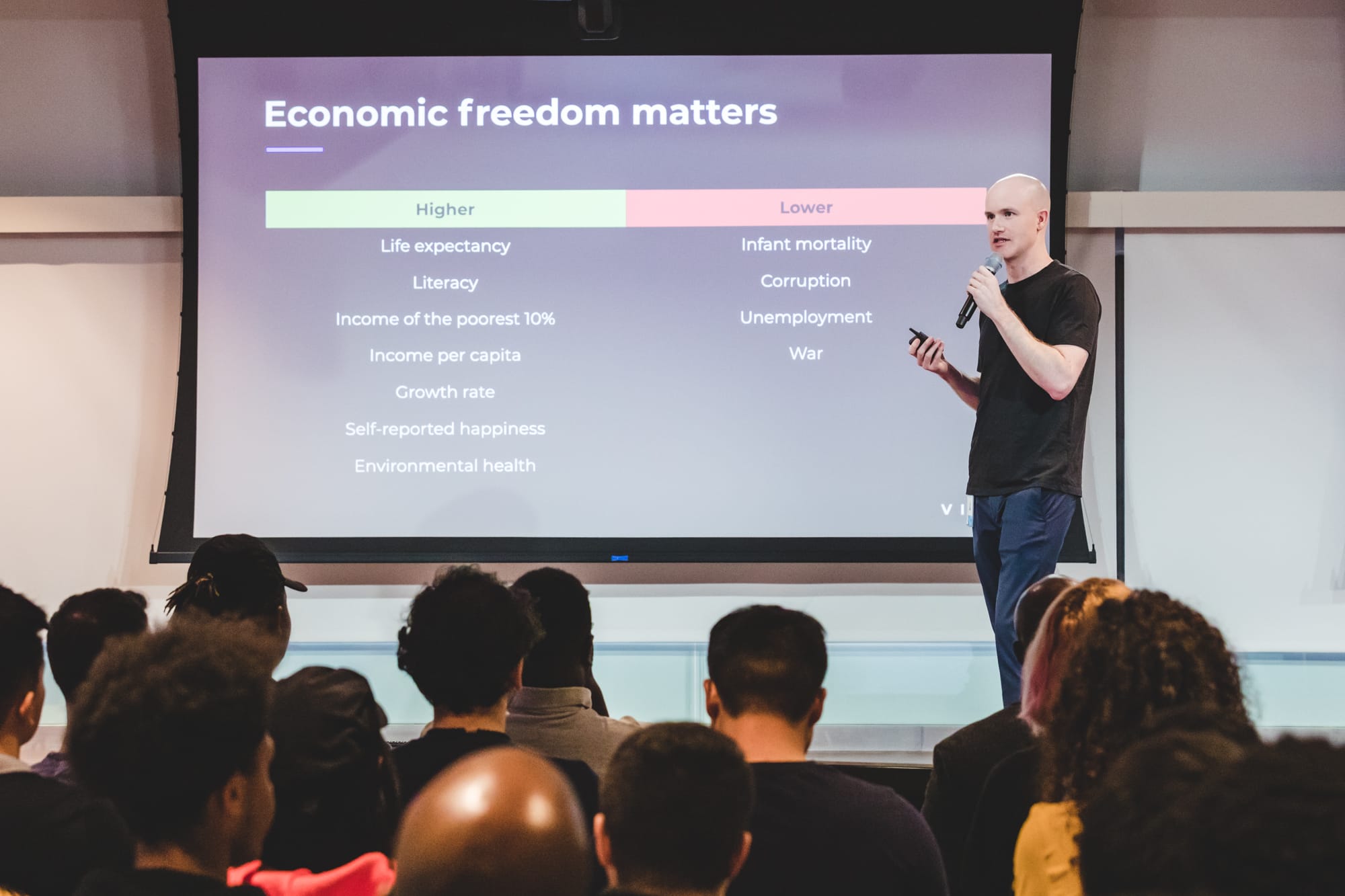Coinbase "clamps down on crypto payments to dark web drug dealers"
Crypto exchange takes steps which appear to be intended to stop people sending funds to criminals' accounts.

Crypto once meant freedom, enabling libertarians, free-thinkers and blatant criminals to operate in relative secrecy without the chill hand of the state ruining their fun. Today, it's an asset class, which means the party is inevitably doomed to end.
Now one of the world's biggest exchanges appears to have taken potentially controversial steps to clamp down on illegal behaviour, taking a big step towards calling last orders on the wild west of crypto.
Coinbase has introduced new security mechanisms that seem intended to stop people from transferring their funds to accounts that have been flagged as dodgy or involved in breaking the law by selling drugs or other criminal activities.
The first of the new features requires people in the UK and Europe try to send their money to another wallet they are asked to type in the name of the person they are transacting with.
In our opinion, this is not particularly difficult to bypass. Machine has been talking to people who buy drugs digitally who said they just bash in a false name and are able to make the transfer to their dealer.
However, another feature is potentially more interesting and raises deeper questions.
We have spoken to people who use Coinbase who claimed they were stopped from transferring funds to wallets identified as belonging to people alleged to be engaged in criminality. Machine has also observed behaviour which appears to back up these claims - although Coinbase has not announced details of a new policy or even confirmed its existence.
The allegations raise serious questions about whether Coinbase is sharing user information with the cops.
We'll be trying to find out. Here's what we know so far.
From the dark web and into the light

It's never been easier to buy drugs online. Once upon a time, it required access to the dark web and a reasonably sophisticated knowledge of how to operate exchanges - which were sometimes untrustworthy and known to scam people.
Today, a number of dealers operate openly on services such as Telegram and advertise their services on open web sites like X or Reddit. Some operate automated services. All drug users need to do is make their order with a bot, transfer the crypto and then wait until the gear pops into their letterbox.
Dealers even offer tracking so that customers can monitor their drug package's journey through the bowels of the Royal Mail - the preferred courier of choice for digital "plugs" that sell illegal substances.
Normally, the packages arrive in perfect condition, wrapped in smellproof mylar to stop sniffer dogs from detecting the contents. Police or postmen are not allowed to open packages without a warrant, so the drugs typically travel through the postal system unnoticed, although Royal Mail workers are known to intercept packages themselves and steal what's inside.
"Someone once opened up my parcel, stole the weed and replaced it with a cotton pad which looked as if someone had used it to wipe tears from their eyes," a drug user told Machine. "But the service is so good that I told the dealer and they simply mailed me another package. It's as easy to buy cannabis these days as it is to order something on Amazon."
Some sellers operate chatrooms where users can discuss their wares, which is where we learned about the new Coinbase requirements.
Machine has been monitoring the chatroom of one cannabis dealer, which we are not going to name. We have established that the service is genuine, offering a wide range of products ranging from herbal skunk weed to edibles shaped like Darth Vader's head.
One customer alleged that he had difficulty paying the dealer via Coinbase.
"I was trying to send money to the dealer and was told I wasn't allowed to transfer cash to that account," he claimed, speaking on condition of anonymity. "What the f***? How does Coinbase have the right to tell me what to do with my own money? I'm never using it again..."
However, despite Coinbase's good intentions, this mechanism may also not be 100% effective.
"I just refreshed the page, tried again and the money went where it was supposed to go" our source added. "But now I'm worried that I'll get a knock on the door - and it won't be the postman with my ganja, but the cops looking to drag me off to jail."
We have observed behaviour on Coinbase that appears to back up the claims - although the exchange has not officially confirmed the existence of its new security mechanism. So, legally, we cannot yet say it exists.
As ever, we remind readers we are a very small publication and cannot afford legal claims - so do not make allegations about businesses with huge amounts of money and access to the best lawyers.
Can the police intercept and monitor crypto transactions?

Coinbase's alleged protections raise several important questions. If it's prohibiting the transfer of crypto to certain accounts, how does it know they are associated with illegal activity? Is it under strict orders from the police to prevent people sending money to dealers? And does it share information about users' activity with law enforcement?
Additionally, when it records a suspicious transaction, can it notify police and can they request packages to that users' address to be seized by the Royal Mail?
To illustrate why this could be an issue of concern, just think of the freedom offered by cash. The state has no ability to tell you what to do with your dosh. You can spend your money on absolutely anything without worrying that the government will get in the way.
Bitcoin appeared to offer the same freedom - although this was always a mirage because all transactions are recorded on the blockchain. If police want to trace your illegal purchases, it's easy to do so.
Today, even this last vestige of liberty is dying on the vine as regulators become increasingly zealous and seek to stick their noses into citizens' business. Earlier today, it was revealed that the British state asked Apple to give it access to peoples' encrypted data - which is a level of official overreach more akin to North Korea than the North London of Sir Keir Starmer and his cronies. It's more than likely that the same forces which want access to Apple's data are looking to penetrate and lock down the dark world of crypto.
However, any attempt to control crypto, the dark web or other illicit services is probably doomed to fail. There are already cryptocurrencies like Monero, which offers untraceable, anonymous transactions. And the cops will never be able to inspect every package that travels through the post.
In certain deep, dark corners of the crypto world, big exchanges have always been unpopular because they place limits on what you can do with your own money.
That sentiment is likely to become even more widespread as regulators put more pressure on mainstream exchanges including Coinbase - which recently secured Virtual Asset Service Providers (VASP) registration from the Financial Conduct Authority, allowing it to offer an improved range of retail, institutional, and ecosystem products and services.
Coinbase introduced a requirement to tell it the name of the person crypto is being transferred to on December 30, 2024, to comply with the EU Transfer of Funds Regulation. However, we do not believe it has publically revealed whether it blocks transfers to accounts held on other exchanges - which would be a significant erosion of freedom if true.
Last year, Coinbase’s intelligence director Iggy Azad, a former investigator with the Metropolitan Police, said that scrutiny of crypto would increase as it becomes more and more mainstream, echoing the police's increasing ability to investigate private citizens' mobile phones.
“Protections around that technology increased, as well as law enforcement’s ability to detect and investigate mobile phone use to the point where today it’s a normal thing to investigate mobile phones,” Azad told DL News.
“The same thing will happen to cryptocurrency,” he added.
Azad also claimed the attitude to privacy within the crypto community has changed due to widespread adoption. Whereas crypto was founded by people who were "railing against the financial system of the world" and trying to build a "new one", they are now simply focusing on getting rich.
In our own words: the revolutionary zeal of the early crypto advocates has been replaced by greed. And instead of increasing freedom, crypto gives the state unprecedentedly deep powers to trace and monitor transactions. Crypto has been coopted and will benefit the powerful, rather than changing the world.
We have written to Coinbase for comment.
Have you got a story or insights to share? Get in touch and let us know.




